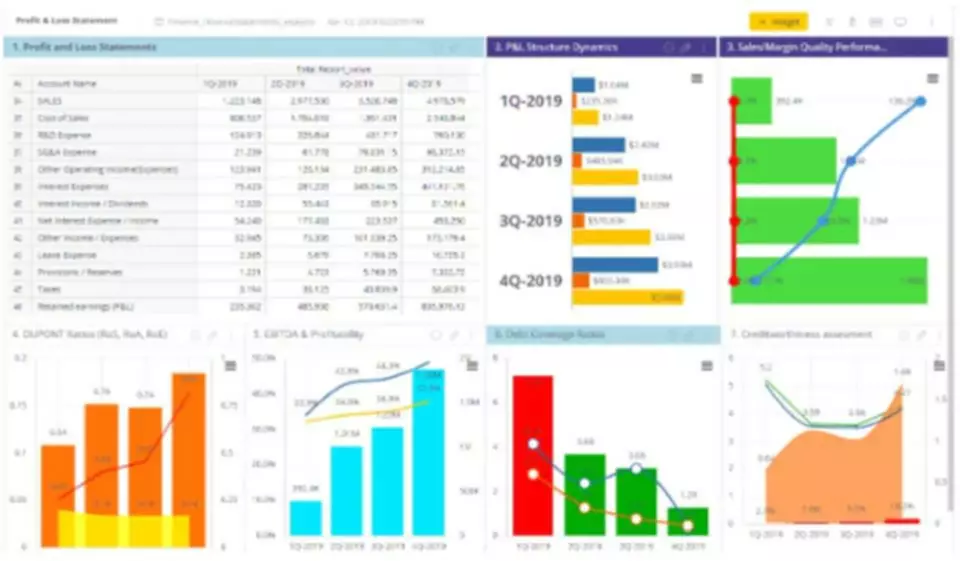Content

Fixed asset accounting involves recording the cost of fixed assets, accounting for depreciation, and recording its disposal. Subsequently, you may incur costs related to the repair or maintenance of the fixed asset. When managing cash payments, you should have an active role in reviewing, approving, and signing checks.

Some business owners choose to outsource their financial needs to an accounting firm. Even small firms can provide expert guidance in helping you prepare important documents or assisting with tax strategy. These services are usually much cheaper than hiring a full-time staff member. Similarly, your liability accounts will reflect money your business owes to others.
Income Statement and Bookkeeping: Revenue, Expenses, and Costs
Fifty states plus the District of Columbia require accountants to earn 150 credit hours of college education before taking the national four-part Uniform CPA exam. Bookkeeping is a great starting point if you are interested in the field but not fully committed and want to test the waters. You may also be an ideal bookkeeping candidate if you want a good job with a respectable wage and decent security but may not be looking for a long-term career. Bookkeeping offers much lower barriers to entry, and the competition you face in the job search is less fierce.
- Accountants deal with tax laws and issues, build lots of reports, and try to take insights from financial data.
- Finally, you’ll want to decide how all receipts and documents will be stored.
- This has to be seen in contrast to list or tree algorithms that have beautiful and simple definitions not needing additional bookkeeping.
- Bookkeeping is the process of recording and managing all financial transactions for your business, including sales, purchases, and payments.
- If you’re not sure about where your small business bookkeeping can be improved, don’t worry.
- The two careers are similar, and accountants and bookkeepers often work side by side.
Effective bookkeeping requires an understanding of the firm’s basic accounts. These accounts and their sub-accounts make up the company’s chart of accounts. Assets, liabilities, and equity make up the accounts that compose the company’s balance sheet. At the end of the appropriate time period, the accountant takes over and analyzes, reviews, interprets and reports financial information for the business firm. The accountant also prepares year-end financial statements and the proper accounts for the firm.
What is Accounting?
Assets will be credited by $10,000 while liabilities will be debited by $10,000. Your small business already has an accountant, so does it really need a bookkeeper as well? While the terms bookkeeping and accounting are often used interchangeably, the definition of a bookkeeper is different to that of an accountant. Bookkeepers may also be involved in improving the efficiency of the accounting process, using cloud-based software to automate and streamline bookkeeping tasks. Outsourcing your bookkeeping or accounting tasks could be a smart idea no matter what size your business is, depending on your business needs. Doing so can free up your time to focus on other aspects of running your business. Plus, you’ll receive valuable insights and financial advice from experienced professionals on achieving business growth and stability in the long run.
- For bookkeepers, there will always be specific periods when payments start flying in thick and fast, and where outstanding work can be a serious blocker.
- When choosing, consider the volume of daily transactions your business has and the amount of revenue you earn.
- One important thing to note here is that many people who intend to start a new business sometimes overlook the importance of matters such as keeping records of every penny spent.
- For example, KPMG offers employees up to 25 days of paid vacation time, telecommuting opportunities, and a robust health insurance package.
- They won’t get easier to fix over time, and can create much bigger headaches down the road.
- Bookkeepers reconcile all balance sheet accounts to ensure that amounts included in each account are valid, and that all revenues and expenses are accounted for.
Bookkeepers help you track and see the data, whereas accountants help you grasp that data and understand how it affects your business. Bookkeeping involves recording and storing your business’ financial transactions and retrieving financial information wherever necessary. Tracking and managing inventory involves keeping enough inventory on hand, tracking its per-unit cost, and accounting for cost of goods sold . Once goods have been received, the bookkeeper should record the inventory purchase along with the invoice due to the vendor. Be sure to enter both the cost of inventory as well as the number of units purchased. Costs, also known as the cost of goods sold, is all the money a business spends to buy or manufacture the goods or services it sells to its customers.
The difference between bookkeeping and accounting
The financial information that the bookkeeper has organized is then supplemented by higher level adjusting entries. The creation and review of the financial statements help the business owner understand the effects of their business’s activities and operations. This information can also be presented to investors, creditors, and regulators as the business grows and develops. As a bookkeeper, your attention to detail must be almost preternatural. Careless mistakes that seem inconsequential at the time can lead to bigger, costlier, more time-consuming problems down the road.
What is the role of a bookkeeper?
Bookkeepers oversee a company's financial data and compliance by maintaining accurate books on accounts payable and receivable, payroll, and daily financial entries and reconciliations. They perform daily accounting tasks such as monthly financial reporting, general ledger entries, and record payments and adjustments.
The year-end reports prepared by the accountant have to adhere to the standards established by the Financial Accounting Standards Board . Bookkeeping is the process of keeping track of every financial transaction made by a business firm from the opening of the firm to the closing of the firm. Depending on the type of accounting system used by the business, each financial transaction is recorded based on supporting documentation. That documentation may be a receipt, an invoice, a purchase order, or some similar type of financial record showing that the transaction took place. This means recording debits and credits and organizing these transactions according to the company’s chart of accounts. Choose a bookkeeping software that posts summarized financial statements and attributes all your sales and fees to your bookkeeping system. This will ensure that, as your business scales, your books will always be tidy and accurate.
A bookkeeper ensures that all financial transactions are recorded and organized for financial reporting. Depending on the size of the company, quarterly reporting may be required. In some cases, this information is needed only at the end of the year bookkeeping for tax preparation. Bookkeeping is important because accurate accounting records are essential to a company’s sustainability. Accurate bookkeeping helps a business manage its cash flow, meet its financial obligations and plan its investments.
- If you don’t have enough cash, try utilizing a line of credit to borrow quick cash.
- They often bookkeepers work a few jobs for various clients if they work as a consultant.
- The Balance uses only high-quality sources, including peer-reviewed studies, to support the facts within our articles.
- When the company actually records a sale or purchase in the books.
- Using the reports generated by a bookkeeper, business owners and leaders can apply for loans or grants and make more informed business decisions.
- When following this method of bookkeeping, the amounts of debits recorded must match the amounts of credits recorded.
And fittingly, there are two entries in the history books for who documented the double-entry system. Some credit Benedetto Cotrugli and his 1458 book Of Commerce and the Perfect Merchant. But most regard Luca Pacioli as the father of bookkeeping, for his 1494 book Review of Arithmetic, Geometry, Ratio and Proportion. A chart of accounts is a list of the accounts codes that can be identified with numeric, alphabetical, or alphanumeric codes allowing the account to be located in the general ledger. The equity section of the chart of accounts is based on the fact that the legal structure of the entity is of a particular legal type. Possibilities include sole trader, partnership, trust, and company. This content is for information purposes only and should not be considered legal, accounting, or tax advice, or a substitute for obtaining such advice specific to your business.
Deposit slips are produced when lodgements are made to a bank account. Checks (spelled “cheques” in the UK and several other countries) are written to pay money out of the account.
What do you mean by bookkeeping?
Bookkeeping is the process of recording your company's financial transactions into organized accounts on a daily basis. It can also refer to the different recording techniques businesses can use. Bookkeeping is an essential part of your accounting process for a few reasons.